
Those of you who have worked with Jacobs Media over the years have learned the distinguishing difference between me and Paul. As we’ve aged, we’ve begun to physically resemble each other, but even though we share the same DNA, we are two very distinct radio guys.
Simply put, I’m programming. He’s sales.
And for those of you who have spent any time inside a radio station – commercial or public – you know we’re talking about two very different species here. This blog tends to feature ideas about content and marketing strategies. But as us frustrated programmers have learned over time – often the hard way – ratings without revenue is a very painful and sobering condition. And it seems to happen with even greater frequency over time.
Today’s post is the next installment of what we hope will be a memorable and valuable week of posts as we start 2022. Yes, it about sales, and it channels an expert I admire very much – the Oracle of Omaha, Warren Buffett. – FJ
Let’s start off 2022 with a few predictions about radio sales:
- It’s going to be another challenging year. When you take out the crash of 2020 and the rebound of 2021, the fact remains that spot dollars going into advertising on the radio aren’t growing, so it’s going to be as competitive as ever.
- Digital revenue will continue to grow, although most radio stations and companies mirror the same product offerings (SEO, SEM, web ads, re-targeting, pre-rolls), which means this category is fast on the way to becoming a commodity.
- Sellers at every radio station will complain the reason they have to lower their rates is because their competition is rate-cutting (including – GASP! – bonusing entire radio stations to seal the deal).
- In response, many stations will kick off their year with a One-Day Sale – calling their entire client list with a low-ball package designed to plump up their booked business while taking dollars off the table their competitors won’t be able to get.
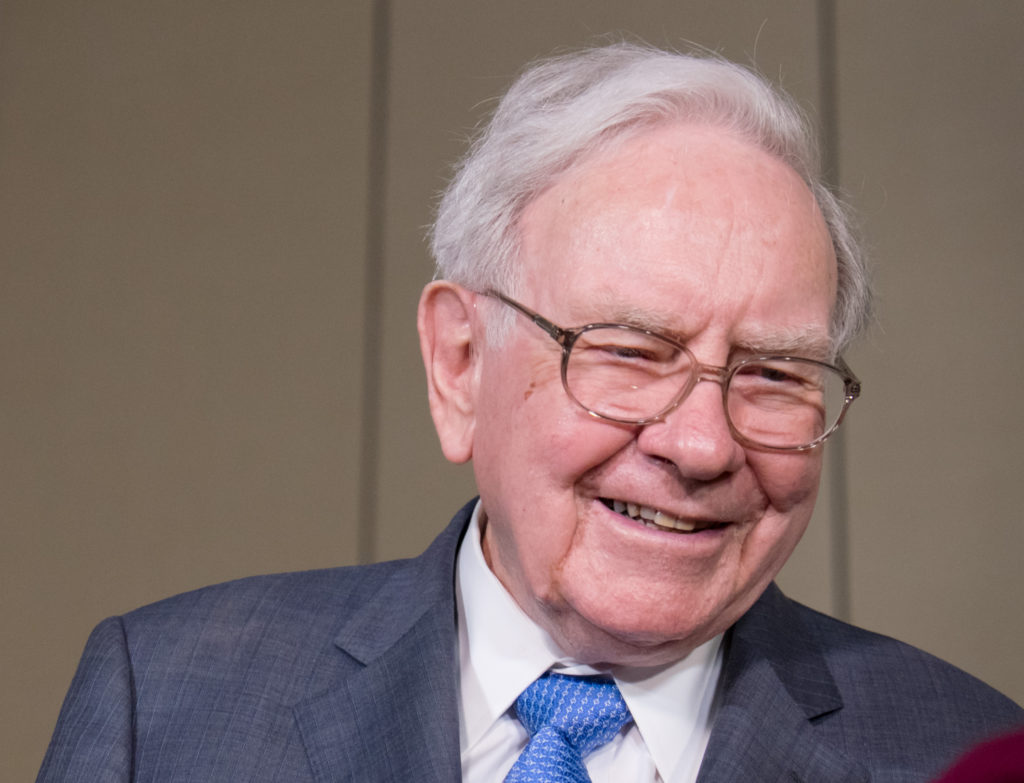 While there is logic behind these moves based on the age-old theory of supply and demand, it’s possible radio is solving a short-term problem with a solution that has long-term ramifications. So, let’s listen to possibly the smartest businessperson in the world – Warren Buffett – who believes tactics like lowering rates due to demand pressure is a huge mistake not just for the short-run, but more importantly, for the long-term health of the brand. His take?
While there is logic behind these moves based on the age-old theory of supply and demand, it’s possible radio is solving a short-term problem with a solution that has long-term ramifications. So, let’s listen to possibly the smartest businessperson in the world – Warren Buffett – who believes tactics like lowering rates due to demand pressure is a huge mistake not just for the short-run, but more importantly, for the long-term health of the brand. His take?
“Discounts are for dummies”
Now, before you start pushing back and claiming your One-Day Sale generates six figures and gets your year off to a great start, let’s pay attention to someone who continues to hit it out of the park with his business acumen – maybe he’s smarter than the average bear. He owns numerous name-brand companies, including Dairy Queen and GEICO, and holds a significant percentage of Apple, American Express, and Bank of America. (FWIW, he even holds a small percentage in SiriusXM.)
park with his business acumen – maybe he’s smarter than the average bear. He owns numerous name-brand companies, including Dairy Queen and GEICO, and holds a significant percentage of Apple, American Express, and Bank of America. (FWIW, he even holds a small percentage in SiriusXM.)
In a recent article in Inc, Buffett continues to demonstrate the secret behind his success because of his quaint, old-fashioned, plainly simple approach to business. He doesn’t get distracted when his competitors slash rates. In fact, when his companies face a new competitor or a pricing war, he recommends his managers hold or even raise prices.
How does he pull this off? Buffett understands the power of building a brand’s value. A deep discount, low pricing strategy is contrary to building brand equity. Think about it – if you approach your client base with a hugely discounted one-day opportunity, what are they going to think about the value of your product when rates go back up? They won’t think of you as a partner worth investing in. Instead, they will think of you as the person they know will drop trou.
The definition of insanity is doing the same thing over and over again and expecting a different result. Given the long, slow decline of radio revenue, maybe it’s time to change the approach, zip up our pants, and take a different path to building value for our stations, and for the industry.
Buffett (not surprisingly) provides three simple steps to building value. They have nothing to do with pricing tactics, but focus instead on the attributes as important to customers as price: Relationship, Convenience, and Uniqueness. Let’s break them down:
 Relationship – There is simply no substitute for having a strong, trusted, professional relationship with a client. Advertisers need to feel confident they’re spending their money with a person and an organization that will do what they say they will do. They gravitate to people and brands that always have their interests in mind. You could have the highest ratings in the market, but if there’s no relationship or you don’t do what you promise, price won’t be the only metric impacted. Advertisers may decide they can buy around you.
Relationship – There is simply no substitute for having a strong, trusted, professional relationship with a client. Advertisers need to feel confident they’re spending their money with a person and an organization that will do what they say they will do. They gravitate to people and brands that always have their interests in mind. You could have the highest ratings in the market, but if there’s no relationship or you don’t do what you promise, price won’t be the only metric impacted. Advertisers may decide they can buy around you.
One common complaint we hear from radio advertisers is the high turnover of salespeople. And it has only intensified in recent years as station/cluster sales staffs have been affected by attrition, budgets cuts or both. This lack of sales stability affects relationships and erodes confidence (and eventually price). In order for radio stations to justify strong rates, developing long-term relationships that can withstand bad rating books, the loss of a key air talent, or a new competitor has got to be a priority, not only for salespeople, but for sales and general managers as well.
Cluster selling has also impacted relationships because too often, trying to sell all stations in a cluster isn’t in the client’s best interest. Concurrently, it’s hard to expect a salesperson to be an expert on all seven stations she’s selling and thus be able to craft client-centric solutions. The result is a deeper reliance on rates, ratings, and transactional relationships.
And then there’s programmatic . . . . effective for selling radio by the ton, but not exactly great for building value and pricing strength. A computer algorithm can’t talk about your morning show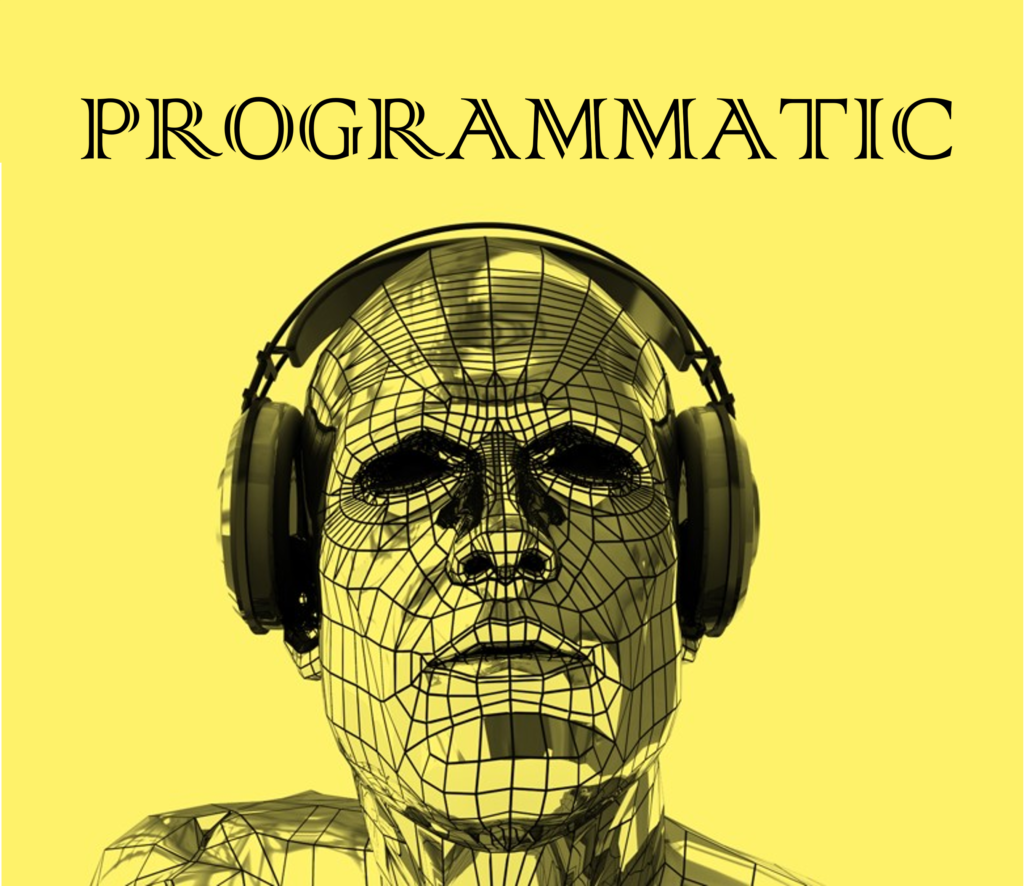 or commitment to the local community.
or commitment to the local community.
The other benefit of having strong, locally-based relationships with clients is that it is competitively invaluable. I’m not talking about other radio stations down the dial or across the street. The fastest-growing revenue segment is digital, and tech companies like Facebook and Google are hoovering up that revenue. Many clients sing the praises of these companies. They provide accountability and ROI. They move merchandise and even put butts into seats.
But when there’s a problem with a campaign or an invoice, who ya gonna call? There’s no 1-800-FACEBOOK to call: “Sorry, Mr. Zuckerberg is busy at the moment. Do you want to leave a voicemail?” Being accessible, empathetic, and responsive are the secret weapons radio has in its quiver, especially up against these tech behemoths. The “Oracle of Omaha” would advise not squandering this advantage.
Convenience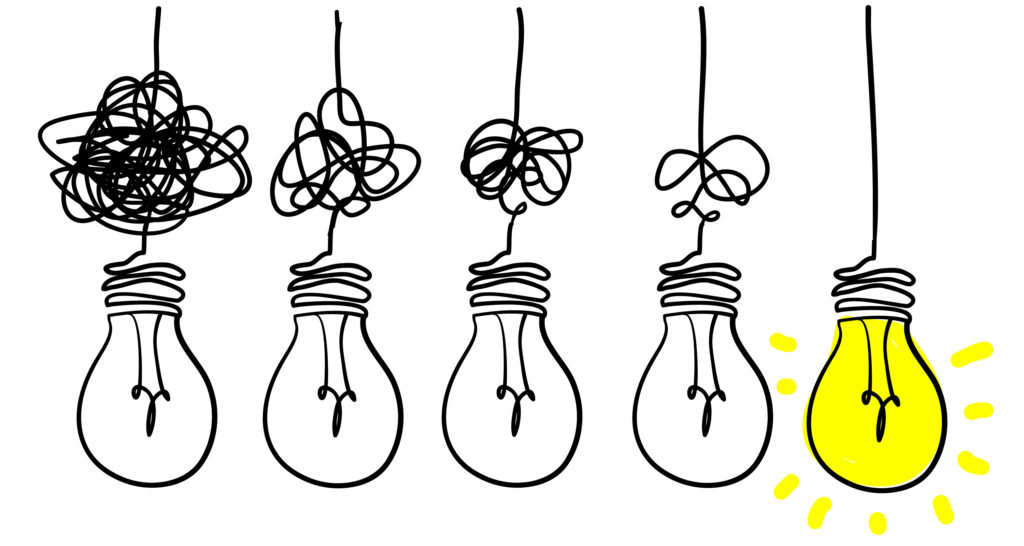
I cannot count the number of times I’ve heard a planner issue the same complaint about reps, stations, and the way radio advertising is marketed and sold:
“Radio is so hard to buy.”
Much of the friction is driven by the number of competitors in a given market, but also the complications created by the many different ways of slicing and dicing the numbers – by daypart, demo, clusters, and other factors. Everyone’s #1 at one point or another, or can make their claims by averaging multiple books together or running around with newest weekly ratings.
No surprise – Buffett’s second recommendation is centered around making sure your product is easier to buy than your competitors. Now some of you might come back at me and say cluster selling makes buying all of your radio stations more convenient.
If that were only true. Bundling up all those call letters in your building makes it easier and more convenient for your sellers. If a client is targeting 18-49 women, why should they buy the Active Rock or Alternative station in the cluster?
Radio’s primary digital competitors – Facebook, Spotify, and Google – have made it easy for clients, regardless of their digital acumen – to buy highly targeted advertising online. We’ve conducted advertiser focus groups this past year. Giant tech companies have made transactions easy. You get what you want, you achieve a very high degree of targetability, and the buy comes with easy-to-understand metrics so you can see how your campaign worked. They don’t force advertisers to buy things they really don’t want.
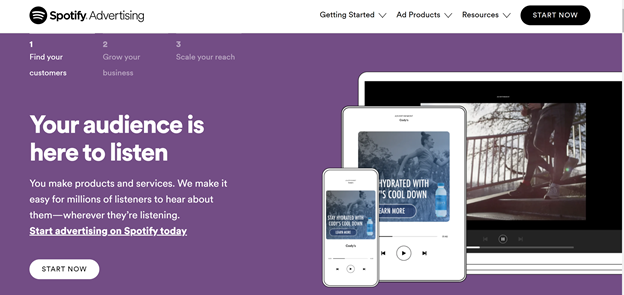
Some broadcasters have created their own dashboards – a step in the right direction. iHeart is one of these. But radio broadcasters are hampered by the industry’s inability to capture all audience across multi-platform in one place – on-air, online, in podcasts. Because radio cannot easily and elegantly present its mass audience the way its digital competitors can puts the industry at a disadvantage gap that isn’t going to be narrowed easily or quickly. Radio is complicated.
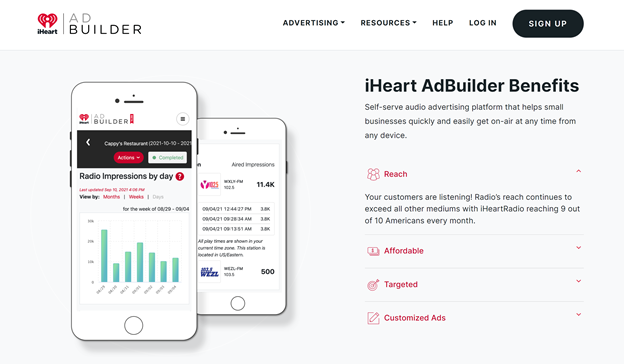
If the radio industry cannot digitize its “convenience” strategy, what are its options? Consider this strategy: go simpler and go analog.
So, what does that look like?
Start off by simplifying your rate structure. Providing too many options can create a situation where the client simply cannot make a decision because they can’t decode what you’re selling and what they’re buying. Radio stations have packages with multiple options – numbers of spots, numbers of weeks, numbers of stations in the cluster purchased, live read vs. recorded, adding digital packages, share of market, yield management, remotes and promotions . . . . . you get the point. Look at your pricing model from the client’s point-of-view, and narrow the options to the most essential.
A good example can be found in the menus of two fast food Mexican eateries – Taco Bell on the left and Chipotle on the right. Which one is easier to figure out?

Now let’s not take anything away from Taco Bell, an incredibly popular and successful brand. But only loyalty to a product will get you through a menu as complex and hard to follow as Taco Bell’s.
And simplifying your rate structure not only benefits your clients, but will benefit your salespeople as well.
On the analog side, it makes sense to place a priority on accessibility. Clients should have easy access to everyone involved in the process – the salesperson, traffic manager, business manager, sales manager, and general manager – via email, mobile device, and yes, even by making a phone call. Stations committed to serving clients might even want to launch a Customer Help Line that is manned by an actual human being twelve hours/day, even if it’s an answering service.
Focusing on convenience is a heavy lift, but an important differentiator. If you can’t figure out how to do it, consider going to the source – your clients – and asking for help. Ask them how you could make it more convenient to do business with. The answers might surprise you (and you might score some points with those clients just because you asked).
 Uniqueness
Uniqueness
If the value of your radio station is based on ratings, you’re in trouble. Why? Because they are totally out of your control. And by pinning your station’s success or failure on ratings, you turn your station into a commodity.
Buffett encourages brands to identify a certain something your product has over its competitors – something that if your customers want it badly enough, they’ll pay more for it. That what programmers call a station’s “secret sauce.” If you have it, you can leverage it – in good times and in bad.
Any station in the world can play the latest Taylor Swift song. But how many have a unique, credible, connected talent on the air to talk about the song and make it stand apart? Or a personality or host who can talk about the client in a way that elevates them above their competition? Or a show that “gets” the essence of the local county fair, “Taste of…” promotion, and all the other things that make communities unique and special.
personality or host who can talk about the client in a way that elevates them above their competition? Or a show that “gets” the essence of the local county fair, “Taste of…” promotion, and all the other things that make communities unique and special.
Talent is what separates radio from its digital competition and from other radio stations for the many reasons you read in this blog daily. But most importantly, talent is something that cannot be replicated, and in the best cases, that should be like money in the bank. Whether the competition is Facebook or Google, or the Eagle or Hot 95, it is unique personalities that have always made radio stations special brands in the minds and heart of listeners – and advertisers.
But beyond talent, stations have other unique assets that provide value. When I work with a rock station sales staff, one area I always focus on is the value of men. In a world where women are perceived as primary decision-makers (not totally true by the way), many advertisers target the lion’s share of dollars at them.
So what’s a rock station’s sales team to do? Ask the PD to play more AC songs to drive their female numbers up? The solution usually isn’t on the programming side – it’s in the way the station’s audience is positioned and valued.
So, how about championing the buying power of men – a rock station’s unique asset. So many advertisers have been ignoring men for so long, they’ve lost sight of their buying power and are missing an opportunity to grab market share.
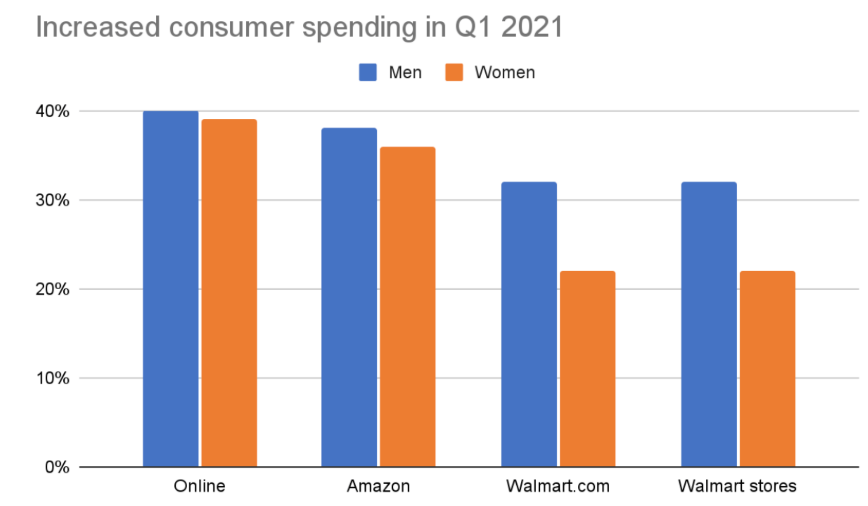
The thing I love about Warren Buffett is that while he is brilliant, he is brilliantly simple. He has the ability to distill complex thoughts into a few crisp words: Relationship, Convenience, and Uniqueness.
Radio sales isn’t brain surgery. But ignoring the trends and not taking a longer term strategic approach will lead to predictable, and disappointing results. So pull your pants up and hit the ground running with a strong strategic approach to selling your station in 2022 and beyond.
And you won’t trip over your cuffs.
- For Radio, Will It Be Christmas In April (And Hopefully, May)? - April 21, 2025
- The Revolution Will Not Be Monetized - December 30, 2024
- What Kind Of Team Do You Want To Be? - October 4, 2024




The relationship aspect cannot be overstated. My clients may not remember how many spots they committed to in their contract a week ago, but they remember the homemade cookies I dropped off 6 months ago. I also remind myself that while the station may be issuing my paycheck, I’m working for my clients.
Good thoughts. Cookies definitely help, but so does the overall relationship – a client who knows you have their best interest at heart, while concurrently, respects your brand and what it can do for them.
Radio sales isn’t complicated but we’ve got to get beyond commoditizing ourselves.
Thanks for the comment.
I am a contract employee at 3 public media stations. The stations issue my paycheck, but I work–and advocate–for my clients. They understand and appreciate that.
Laurette, that’s excellent. And the research we’ve done on the “halo effect” indicates the audience values public radio sponsors in ways not found in commercial radio. This value proposition is the “secret sauce” and is much more powerful than ratings.
Well said! Advertisers will always pay top dollar for specific marketing vehicles. Look across the internet. We are awash in niche marketing vehicles where advertisers are paying top dollar to reach fans of a certain segment. We, in radio, also have these products, too. Ones that are capable of reaching specific lifestyle groups, yet we have not capitalized on that mass audience segmentation. We spend entirely too much time worrying about demographic segmentation instead of highlighting lifestyle behavior patterns that make the biggest tribe of commonality and bond of commerce on the planet. If we were to focus our efforts specifically on the lifestyle and pattern of groups we represent – we could actually demand a higher premium for our service.
For once in my life, Chris, I have nothing to add. You’ve summarized it perfectly!
Great and important read.
Seems like we’ve been talking about this for years…but it never hurts to hit it again.
I’ve been out of the day to day for about 4 years now. I’ve seen and worked for a agency and now, I represent broadcasters in the Commonwealth of Virginia. It’s my passion and I love it. However, my eyes are wide open now.
Radio, while a strong medium for many advisers, is viewed as a bottom feeder due to price. Just yell “boo” and your off of/back on the buy….it’s become a running joke in many clients and agencies.
Paul, as you and Fred likely remember I was honored to be on a panel at one of the DASH conferences with other broadcasters and auto dealership principals. I recall heading up the escalator with one of the car guys that was on my panel. I shook his hand and thanked him for joining me and he said “You know, DP, the best advice I could give radio leaders”?. I said “what’s that”?
Learn how to walk away from the table.” “There’s a big difference from being a negotiator and a accommodator”.
Food for thought.
Spot on, DP. I have a dear friend who was the head of media for an agency in LA who oversaw $250 million in spending for a car company. One day he called me up and asked, “What’s wrong with radio?” He went on to tell me that radio was ticking him off because his planning team projects a CPP, and radio always comes in 10%-25% below it. It made HIM look bad while radio was looking bad.
Who will be the first to say “no?”
Very good and valid points. Sometimes the pressure of reality is “Discounted Sales vs No Sales.” You do what you have to do. There are reasons for seasons of down demand. Most retailers understand supply and demand. It is up to the media to persuade its value.
Thanks for the contrarian points. Well said. Yes, supply and demand rule, but I believe it’s at the exclusion of a longer-term value-based strategy. I see rates dropping in July and early December, and all too-often see clusters bonusing an entire station to get a larger share (talk about no brand value for the station being bonused).
Bottom line is the industry needs to start thinking differently about value if we want to grow revenue, not just fight over share of what’s left.
Paul, this reminds me of back when the major car makers started offering cash “rebates” on their vehicles. (I’m not sure how that differs from discounts but then, you’re the marketing pro, not me.) It was common to hear of cash-back rebates of $2,000, $3,00, even $5,000 or more depending on the vehicle–and it definitely grabbed your attention. But the “rebate” I’ll never forget at the time was when Cadillac offered a free YUGO with the purchase of a new Caddy! I mean, what does that say about the value of the YUGO?? (Ok, probably a bad example, but still, you get the idea…)
David, while there’s nothing wrong with incentives, if that’s the core of the offer, value will decline. This is less about one-day sales and more about how building value around audience, personalities, and brand are a year-round effort.
RE: Yugo, while the offer was clever, attaching a quality brand to a Yugo is insane.
Wow! Applause ! Thanks…
Thanks, Tom. Hope you are doing well. It’s been too long . . .
Take care, stay healthy.
This was a great column Paul – and I haven’t stopped thinking about it.
Some random thoughts:
Why can’t radio aggregate all of its products into something that summarizes media value that agency can decipher easily? It’s not that hard to do and every radio seller should have a phone app that does and exports it in whatever format media buyers use these days. The convenience piece could be addressed. The other two (relationship/uniqueness) will be much harder.
Radio has always been about media value and not externals. The large digital media companies have underscored that in a way that’s probably permanent – and by the time you aggregate market clusters, there usually isn’t a lot of product differentiation anyway. Further, most of the uniqueness (great morning show, etc.) has been centralized and commoditized “did you hear that great reference to our balloon festival that the PM drive jok who lives 1000 miles from here made to fulfil one of his two local references per hour requirements?”. Plus, sales staffs and compensation have been cut to the point that the kind of relationships you described aren’t physically possible and possibly not even profitable.
Radio had a rate integrity problem even in the good old days. If you tried to walk a piece of business because the CPP was too low or parameters too strict, everyone in the chain acted like you were about to ruin everyone’s life permanently. One year, I decided to walk Budweiser and you’d think I started a global pandemic. Radio sellers and their management have long been loath to walk business strategically and truly, some of my toughest days and biggest fights were when I did it – even though the customer blinked every time.
So the answer to these sales problems IMO is in the product. Until radio can rebuild its brands, become more differentiated and offer enough aggregated media value to support the kind of consultative sales approach Paul so beautifully described, these ideas probably won’t go any further than a blog post. I think sales is the victim more than the driver, but to be fair they’ve always got one hand on their belts to address any challenge. I guess there’s a reason why Warren Buffett never invested in radio.
Bob, thanks for the great response. Too often I meet with a sales team with great ratings but bad revenue. I ask them what the problem is and often they say things like “we don’t have enough women and that’s what buyers want.” That makes me crazy! I tell them a) so you’re telling me its not about ratings (which are great) and b) you are devaluing your own audience, and letting the buyers get away with it.
Of course, if their ratings were crappy they’d use that as an excuse.
So yes, having a great product certainly makes it easier to sell and build value. No question. But it also takes guts to position what you have and to say “no” because of your belief in product and its value.
Thanks for keeping the conversation going, Bob. Hope you are doing well.
I’ve been on the programming/on-air side of the building almost my entire career (I did attempt sales for awhile; the less said about that, the better).
I think Mr. Buffett is correct here, but the principles can be applied toward programming and air talent, too. For me, I work to making it easy for listeners to communicate with me — phone, social media, email; to build a relationship by talking about what they’re talking about, and to talk about what’s going on in our small market, because no one in the large market down the road will.
The brilliance of Buffett is he keeps things simple. Business isn’t brain surgery, whether in programming or sales. It requires being a good listener, having empathy, being driven, answering the phones, responding quickly – things we were taught when we were kids.
Thanks for the great comment, Don. It’s good to hear a programmer chime in on a sales post, because as Fred will tell you, we are all in sales.
Fantastic article that should give everyone in our industry a thought provoking PAUSE. Thank you for making all of us think before that next round of “negotiations”, “package pricing”, “freebie station offer”, and complicated, convoluted pricing session.
Trying-to-keep-it-simpler-here-in-Virginia.
You always had that gift, Carol. Great to hear from you.
Many have said that radio is an industry for “C” students (like me). I don’t think sales is brain surgery. But it does require stopping for a moment and worrying less about making goal in January and thinking through just what it is you are doing. Are you building brand value? What are you actually communicating to buyers when you drop trou or don’t have command over your product?
Thanks for the comment, Carol, and keep making it simple in Virginia!
This is great advice, if only the GMs and GSMs will follow the Orcale-inspired recommendations.
While it’s tangential, I want to add something that shoved itself to the front of my brain when I read the comment “if your station’s worth is based on ratings, you’re in trouble.”
When Bill Drake was programming KHJ and put an absolute limit on the amount of commercial time per hour, he got some pushback from sales, who were understandably eager to cash in on the success of the format. His answer (paraphrased): “The limits stay. If we’re sold out, raise the rates when contracts renew and then sell the time that anyone gives up.”
THAT is what we have forgotten about the value of our stations. Never mind the ratings … what’s it worth to the advertiser?
There’s a sales story I use when training sales staffs. . . .
A guy is at a party and is telling his friend he’s in the market for a new car. He’s done the research for weeks about performance, value, and options. He’s compared all of the metrics and has decided on a Volvo and is going to the dealership the next day to buy one. His friend responds, “my wife had that car. It sucked.” What do you think the guy bought? Not a Volvo.
People remember stories – they don’t remember ratings.
Great column, Paul….but you forgot to include Taco Plaza ( and the Wango Taco) in your side-by-side menu comparison 😁😁😁
I wish it still existed, but isn’t the Wango Taco story right in line with this blog post? (For those of you who never heard of Wango Taco, email me and I’ll send you the story about a creative solution that had nothing to do with ratings that got an advertiser to change their demo and we got the lion’s share of the buy – [email protected]
Hope you are doing well, Biv.
Reading this late. But you had me (laughing) at “drop trau”. But you REALLY had me with the “make it easy” suggestions. Public radio has notoriously been “difficult to work with”, yes, even worse than commercial radio. I am plagiarizing this entire article of future reference. Of course, you’ll get the cred…so maybe it’s legal?
Consider it legal Tim, and I’m glad it resonated.
Public Radio has the additional challenges around language and length, eliminating a lot of potential sponsors. So making it easy should be a high priority!
Hope you are doing well.